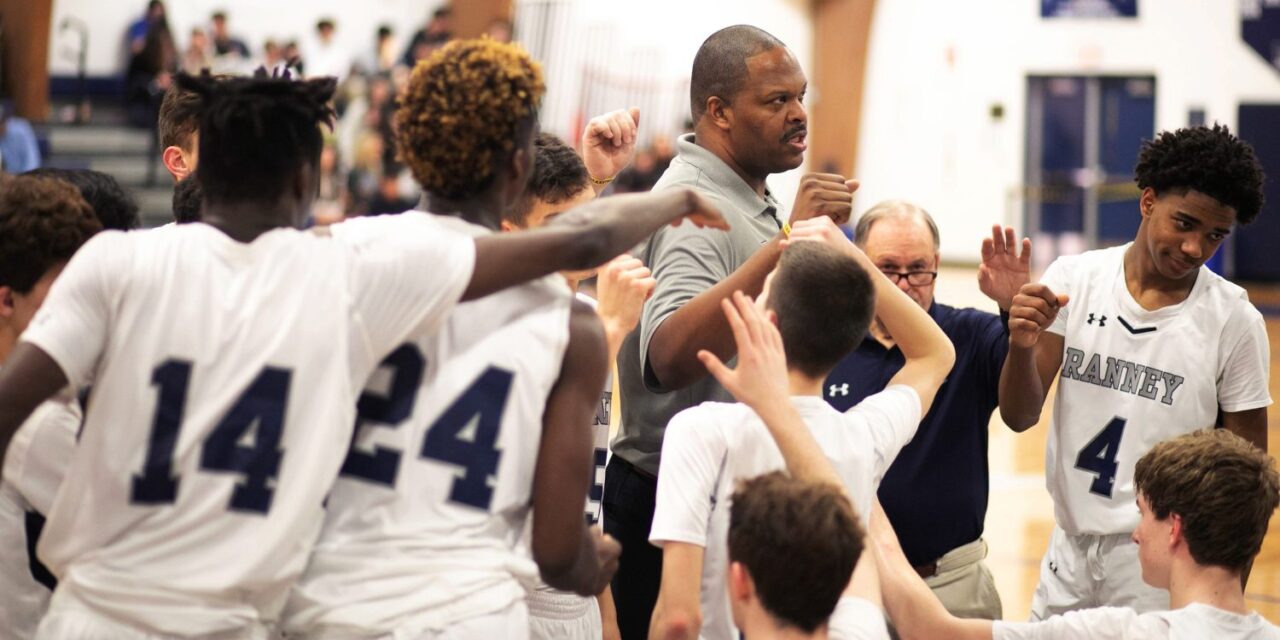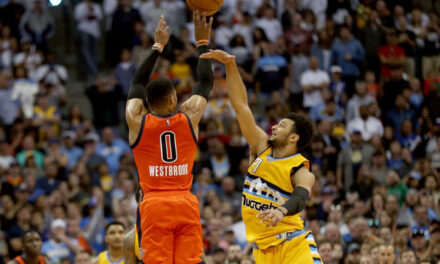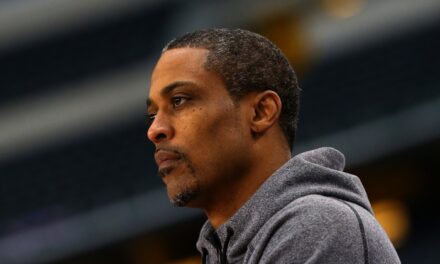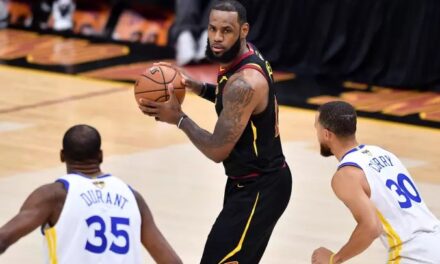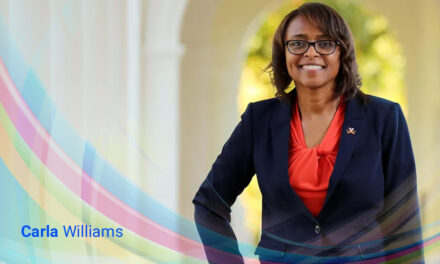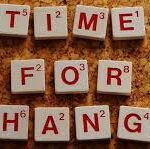Tahj Holden, a former NCAA champion and now head coach at the private Ranney School in Tinton Falls, New Jersey, finally got back to the Monmouth County Medical Center late in the evening of March 6, 2018. A few hours earlier, Holden had seemed like his normal self as he paced the sidelines during his squad’s 71-56 win over Trenton Catholic in the semifinals of the state tournament.
It was a milestone victory for the Ranney Panthers, their 14th consecutive win, including the school’s first Shore Conference title. In a few days, they would face Roselle Catholic, the powerhouse that handed Ranney its last loss, a 75-49 thrashing at the end of January.
The upcoming state championship game was a monumental accomplishment for a school that had never attained such heights on the New Jersey prep basketball scene. Yet Holden was subdued, his thoughts far from the jubilation that his players were basking in.
He just wanted to see his boy smile and hear the doctors tell him that everything would be fine.
__________________________________
For the 39-year-old Holden, the basketball court had long been an oasis. It was where he first formulated visions of his future. Through hours of sweat and toil, he molded himself into a tantalizingly skilled 6-foot-10-inch forward/center who would go on to help the University of Maryland to its first Final Fours and the program’s lone national championship in 2002.
The gym was a place of joy, of accomplishment, of yearning for a future that was pregnant with promise. Now, it had become a respite from an unfair world.
A few days before Ranney’s game against Trenton Catholic, Holden and his wife Carrie were becoming increasingly concerned about their 16-month-old son, Maxwell. The insides of his ears were flaming red and his left eye was protruding slightly. Max’s normally hearty appetite had all but disappeared. His jovial disposition had been replaced with a fretful irritability.
“Max’s personality had changed,” said Carrie Holden. “I always used to rub his head at night before he went to sleep. He had the most beautiful set of curls and he loved when I’d rub his scalp. But it got to a point where he didn’t want me touching his head anymore. One day, I saw him banging his head against a wall. We were very concerned, wondering what would make him want to do that to himself.”
Thinking that their son had an eye infection, the Holdens reached out to a family friend who is an ophthalmologist. The doctor prescribed some antibiotics for Max and said, “Let’s see what happens over the weekend.”
“We thought we were dealing with an eye and an ear infection,” said Holden, who took Max back to the doctor the day of the semifinal game, expecting to drop him off at preschool after the appointment. But the plan had to change when the doctor ordered a CAT scan.
The Holdens arrived at Monmouth County Medical Center at 2 p.m. They were still waiting for the test to be done as game time approached. Carrie Holden told her husband to get going, that his team was counting on him, that everything with Max would be OK.
That evening, Ranney’s 6-foot-5-inch junior guard Bryan Antoine erupted for a game-high 30 points and his 6-foot-5-inch junior backcourt mate Scottie Lewis scored 20. Holden traipsed back and forth in front of his bench, exhorting his team to play at a frenetic pace and attack the basket. Underneath his usual calm exterior, though, he was a storm of emotions.
His internal optimist told him, “It’s just an infection, we’ll get this sorted out and be back home tonight or tomorrow.”
But he couldn’t help but wonder what was going on with Max. After meeting with his team in the celebratory postgame locker room to discuss the upcoming state championship, he bolted back to the hospital.
Holden made it in time for Max’s CAT scan, which finally took place at 11 p.m. The doctors wanted the boy to stay overnight as a precaution. Early the next morning, the Holdens were told that he was being transferred to Robert Wood Johnson University Hospital in New Brunswick, close to an hour away, because that facility had more specialists.
Holden told his wife to ride with Max in the ambulance, that he’d stop at home to grab some stuff and meet them in New Brunswick.
When Carrie Holden and Max arrived at Robert Wood Johnson, they were wheeled into an elevator that opened up on a floor with signs that read “Oncology and Hematology.”
“Why are we going here? Are all of the other beds filled up on the other floors?” Carrie Holden asked.
The staff transporting Max simply said, “This is where they told us to go.”
Holden arrived shortly thereafter.
“The doctor walked in. She was wearing a white coat that said Oncology and Hematology,” he said. “It didn’t quite register with me. I figured he was going there to get some treatment for whatever was bothering him and everything would be all good. The doctor looked at me and my wife and said, ‘You guys have no idea why you’re here, right? We believe your son has pediatric neuroblastoma. Your son has cancer.’”
__________________________________
Holden grew up in Red Bank, New Jersey, a town on the Navesink River, an eight-mile long estuary surrounded by its signature red soil.
An only child raised in a single-parent household by his mother Debbie, he was surrounded by a loving extended family. His grandmother lived across the street, with an aunt around the corner.
“My mom ran a tight ship and I had to stay on the straight and narrow,” Holden said. “I couldn’t do anything in the community without somebody knowing. Getting in trouble was not an option for me.”
Debbie Holden had a well-paying job as a civilian analyst at the nearby military base, Fort Monmouth. His friends’ families owned boats. Their parents were doctors, lawyers, entrepreneurs, Wall Street investment bankers. The expectation in any endeavor was achievement and excellence.
Holden was a bright student who loved math and science and was placed on the gifted and talented track in elementary school.
Debbie Holden was a huge sports fan and Holden says that one of the greatest gifts she gave him at an early age was a subscription to Sports Illustrated. He lost himself in stories about Magic Johnson and Michael Jordan before he ever saw them play. It was the match that lit the fuse of his love affair with basketball.
By the eighth grade, he stood 6 feet, 5 inches and was smitten with the game.
“I was the biggest kid in town for my age, but I wasn’t very good,” Holden said. “But I was a competitor that hated to lose. I started taking it seriously because I wanted to figure out how to become good.”
He improved incrementally each year, but the proverbial light bulb went off the summer before his junior year. Playing in an AAU tournament in Florida with his Central Jersey Hawks squad, he found himself matched against Donnell Harvey, who was ranked among the top players in the country. (Harvey later played for five NBA teams before going abroad for a decade.)
“This was before the proliferation of internet highlights, so you just heard about guys,” said Holden. “In warm-ups, he was doing windmill dunks straight off a standstill vertical. So I was a little bit nervous.”
Apprehension gave way to anger after Harvey caught a tip dunk over him on an offensive rebound.
Holden’s inner voice screamed, “Get his a– back!”
On the ensuing play, Holden established deep post position and yelled for the entry pass. He walled Harvey off, cradled the rock in his massive hands, turned around and emphatically dunked on him. It was a pivotal moment in his maturation as a legit Division I prospect. He giddily whispered to himself while getting back on defense, “Yo! He’s top 10. And I just dunked on him! I think I’m gonna be all right.”
__________________________________
When Max’s initial diagnosis came in two years ago, the Holdens were told that their little boy had six tumors on his skull, including one behind his left eye, along with a mango-sized tumor attached to the adrenal gland on top of his kidney.
“We broke down and cried really hard,” said Carrie Holden. “Childhood cancer was not on our radar.”
Holden, normally reserved, felt an outrage welling up inside him.
“I was so angry,” he said. “I was questioning everything, pleading for answers. ‘Why us? Why Max? He’s such a great kid!’ After I calmed down, I was just devastated. When you hear that your kid has cancer, there are no words to truly describe how you feel. But I knew that I couldn’t get stuck in that space. Then it was like, ‘OK, it’s time to fight. What’s the plan? How do we beat this?’ ”
Max would spend the next 33 days in the hospital. Many more would follow.
__________________________________
By his senior year in high school in 1999, Holden stood 6 feet, 10 inches. Despite his size, he was no lumbering big man. He had the speed and grace of a much smaller athlete. His footwork in the post was exceptional, as was his ability to rebound and play interior defense. His vision and passing were rare for a power forward/center, as was his ability to consistently knock down 22-foot jumpers.
He was a Top 100 recruit, but the post players who carried the most weight in his recruiting class included Harvey, Jonathan Bender, Carlos Boozer, Drew Gooden and Nick Collison. Still, Gary Williams and his staff at the University of Maryland were interested.
“Tahj had skills, he was a very good passer, could really shoot from the perimeter. And this was before everyone was looking for a big man that could stretch the floor,” Williams said. “And he was a sweet guy, very bright, just a quality human being. He inherited that from his mother. He didn’t have a narrow view of anything and people gravitated to him because he had such great people skills.”
Williams’ intense manner appealed to Holden, along with what he was building with the Terrapins’ program. While some college coaches promised an immediate starting role, Williams’ commitment rang more sincere. “I won’t promise that you’re going to start, but if you can help me win, you’re going to be on the court.”
Holden appeared in all of Maryland’s 35 games as a freshman, proving to be a capable backup to the team’s established starters and future All-Americans Lonny Baxter and Terence Morris, who would both go on to play in the NBA. When Morris missed two games due to injury, Williams inserted Holden into the starting lineup. The freshman responded with a season-high 17 points against Wake Forest and a 12-point, 10-rebound, five-block gem against Clemson en route to earning ACC Rookie of the Week honors.
“Tahj could have been a four-year starter at most universities and in big game after big game, he provided a steady force for us off the bench,” said his college teammate Steve Blake, a guard who played 13 years in the NBA and is now an assistant coach with the Phoenix Suns. “And he was so easy to get along with, on the quiet side but very intelligent, just a lot of fun to be around.”
As a sophomore in 2001, Holden was instrumental in Maryland reaching the Final Four for the first time in the program’s history.
In that year’s Sweet 16 game against Georgetown, Holden barely saw the court in the first half. But he was a key figure in the second half. With 11:55 left in the game, for instance, Georgetown’s 6-foot-11-inch forward Lee Scruggs missed a leaning one-hander, which was snagged off the rim by Baxter. Holden sprinted downcourt. Baxter swung the outlet pass to guard Drew Nicholas, who dribbled twice before unleashing a laser to Holden, who had outrun everyone. He caught the ball over the shoulder like Randy Moss in the open field, and went up for a layup off the glass, forcing Georgetown to regroup with a timeout.
Another memorable moment came at the 6:20 mark. Georgetown, trailing 59-56, switched to a zone defense. Blake, on the right wing, swung the ball to Byron Mouton at the free throw line. He flicked a textbook bounce pass to a cutting Holden, who rose up for a two-handed layup off the glass.
“Pretty kiss!” yelled CBS announcer Gus Johnson.
The final box score affirmed Baxter’s dominance, with 26 points and 14 rebounds in Maryland’s 76-66 win. But it does not tell the full story of the importance of Holden’s 10 points and five boards, along with his defense, passing and blocked shots.
Against Stanford in the Elite Eight, Holden splashed three of his four 3-point attempts en route to scoring 14 points, helping the Terps advance to their first Final Four.
The following season in 2002, with Baxter saddled with early foul trouble in the Final Four against a formidable Kansas squad with the big man tandem of Gooden and Collison, Holden came off the bench for 13 points and five rebounds in 24 minutes.
Maryland would go on to win the national championship 64-52 over Indiana in its next game. Williams, talking to a Baltimore Sun reporter, would later say of Holden, “He was like having a sixth starter and was very important to our success.”
“We don’t win a national championship without him,” said Blake.
“When he came into the game, there was no drop-off,” said Williams. At the end of the championship game, he noted, “Tahj is on the floor, as he was in a lot of our games because of his ball-handling, smarts, passing and ability to knock down free throws. For a coach, it’s not about who starts, but who finishes the close games, because if a guy has a discernible weakness, he can’t be on the floor. In those crucial times, Tahj was always there for us.”
After helping lead the Terps to the Sweet 16 as a senior in 2003, where they lost to Michigan State, Holden worked out for a number of NBA teams and was invited to play on the Atlanta Hawks summer league team. But an invitation to training camp never materialized, so he went to play pro ball in Istanbul.
Upon his return, his heels were in excruciating pain. He played through the discomfort as a member of the Detroit Pistons summer league team, but scans revealed calcium deposits the size of a nickel on both of his Achilles tendons. The long-term prognosis was not good. Rather than risk permanent damage, he returned to Maryland to complete his bachelor’s degree in communications.
Shortly after Maryland won the national title, Holden was out with some friends in College Park when a mutual acquaintance introduced him to Carrie.
“As soon as I met him, I could tell that he was a very kind person,” said Carrie Holden. “He treated his friends well. The more I got to know him, the more I saw that he was the nicest person I knew. His mother, aunt and grandmother raised someone with really good manners. He was so articulate and so smart.”
The two initially bonded over a shared love of Jay-Z’s music. Their conversations about the merits of his Reasonable Doubt, In My Lifetime, Hard Knock Life and Blueprint albums lasted into the wee hours. Holden found himself smitten. Carrie was smart, intense, a go-getter with a smile that stopped him in his tracks.
On Christmas Day 2005, he proposed. They got married in San Diego in 2007, shortly after Holden completed the requirements for his degree. Carrie’s job at the time had sent her out west to help open an insurance office.
It was in California where Holden started the next phase of his basketball life, this time as an assistant coach at La Jolla Country Day School. His love for the game was calling him to mentor and share his knowledge with young men.
Their first son, Cole, was born in November 2014 when Holden, who had a full-time job as a financial adviser, was also working as an assistant coach at Christian Brothers Academy in Lincroft, New Jersey. He’d previously spent three years on the staff at nearby Monmouth University, two as the director of basketball operations and one as an assistant coach. In June 2015, he took the head coaching job at Ranney.
“For a school like Ranney to land a coach with that pedigree is unbelievable,” then-athletic director Bobby Malone said when the announcement was made. “What he brings is so far beyond basketball. He’s just a man of high character, and that’s what I’m most excited about.”
Maxwell was born in October 2016. Sixteen months later, Holden heard four words that would change his life forever.
“Your son has cancer.”
__________________________________
Max’s first surgery, a three-hour procedure to remove the tumor on his kidney, took place March 9. The next day, Holden was coaching in the state championship game against Roselle Catholic.
Word of Max’s plight had spread throughout the community. The packed stands at the RWJBarnabas Health Arena in Toms River were full of people wearing fluorescent T-shirts – the same ones the Ranney players wore during warm-ups – that said “Max Strong.”
When Holden walked onto the court before tipoff, he was greeted with a standing ovation. The Ranney players, who were accustomed to seeing Max bouncing around the stands at their games, played an inspired brand of ball against one of the top teams in the country.
The Panthers would eventually lose a nail-biter 63-61.
“Tahj was physically at that game, but mentally he wasn’t there,” said Carrie Holden, who received updates via text while staying in the hospital with Max. “His mom told me that he called a timeout once that made absolutely no sense. He was just going through the motions and I know that the players were distraught as well.”
“We are in the state championship game, everything that has been going on this entire week, the chip that we normally have on our shoulder was much, much bigger,” Scottie Lewis told the Asbury Park Press after the loss. “We were playing for the seniors, we were playing for Max, we were playing for the entire Ranney community and the entire Holden family.”
The Ranney players are accustomed to seeing Max and his brother Cole Holden at the school gym. “I’m amazed at how resilient Max is. I don’t know how he keeps a smile on his face,” Tahj Holden said.
Max began the first of many chemotherapy treatments the next day. Over the past two years, he’s had so much chemo and radiation that one of the side effects has been high frequency hearing loss. He’s due to receive a set of hearing aids soon.
The Holden family has been humbled by the support they’ve gotten. They’ve received tons of gift cards. When a story in the local paper mentioned how Max loved to watch his iPad during hospital stays, they received a supply of iPad chargers. A GoFundMe campaign was set up by a family friend that raised more than $176,000 to help the family offset their mounting expenses.
Fortunately, Holden has excellent health care benefits through his job. After working as a financial adviser with Morgan Stanley for the past six years, he recently accepted a similar position with wealth management firm Janney Montgomery Scott. (Carrie works in Manhattan as a sales and education manager for the Boscia skincare company.) But despite a flexible schedule, the amount of time Holden spends going back and forth to treatments and Max’s extended stays in the hospital have affected his ability to generate the income he would under normal circumstances.
During that initial 33-day stint at Robert Wood Johnson, Max received morphine every day to offset the pain caused by the tumors in his skull. Another five rounds of chemo followed and his lustrous curls started falling out in clumps. After returning home, he’s endured a nonstop roller-coaster of surgeries, chemo, radiation and immunotherapy, with any improvement often followed by more bad news.
After being encouraged that the tumors in his head were shrinking, an MRI in August 2018 showed three emerging spots on his brain. Max underwent a craniotomy, the surgical opening of the skull, in January 2019 so doctors could perform a biopsy.
Two more craniotomies followed in October to remove the tumors, one of which took up a quarter of his skull cavity. Another smaller one was the size of a golf ball. A catheter system was implanted under his scalp to allow for chemo to be delivered directly to his brain.
Tahj and Carrie Holden find themselves walking on eggshells every day.
“He inspires all of us. We’re not just playing for ourselves, we’re playing for him. His spirit in the middle of fighting cancer, his smile and laughter, it just lifts everybody up.” — Ranney player Kyle Rhoden on Max Holden.
A few weeks ago, the family went out for dinner at Tommy’s Tavern + Tap in Sea Bright, New Jersey. After eating half of his normal portion of one of his favorites, the coal-fired baked chicken wings, Max insisted on lying down in the booth where they were seated.
As the family prepared to leave, he began screaming that he wanted to be held. He wouldn’t help in putting his coat on, which he ordinarily took pride in. After buckling him into the car seat, Holden noticed that Max was holding his toy truck in his right hand, which seemed odd because he is left-handed.
“I told him to give me a high five, and he goes to give me one with his right hand,” said Holden. “I said, ‘No, with your left,’ and he wouldn’t do it. I told him to grab my hands and squeeze and he couldn’t do it with his left hand.”
During the frantic ride to the emergency room, Carrie watched as Max attempted to put on his headphones so he could watch a DVD.
“He couldn’t use his hand and started becoming upset because he couldn’t understand why his hand wasn’t working,” she said. “He was slurring his words and we couldn’t understand what he was trying to say. His face started looking droopy and we were frightened, thinking he was having a seizure or a stroke.”
Luckily, this incident was soon over. Max had an inflammatory response to his most recent treatment that resulted in a slight brain bleed. It self-corrected before the local hospital sent them to Memorial Sloan Kettering Cancer Center in Manhattan, where Max receives his treatments.
__________________________________
Last year, Ranney was led by seniors Lewis and Antoine, who would both be named McDonald’s All-Americans at season’s end. The team not only repeated as Shore Conference champs, but also won the state title that had eluded them the year before. They then won the Tournament of Champions as the best team in the state.
This season, with Lewis playing at the University of Florida and Antoine at Villanova, Ranney’s squad is relatively young and inexperienced. But Holden said he’s enjoying the challenge of starting over, of teaching and helping his players improve.
On Feb. 11, as his team warmed up in its home gym for a game against Asbury Park High School, Carrie Holden walked in with Max. Holden’s mom, Debbie, and his aunt Shirley Holden were already there. Carrie’s eyes stayed locked on Max as he dashed to hug his brother and then shook loose to run through the buzzing gymnasium.
The Migos and Lil Uzi Vert song “Bad and Boujee” played in the background while the teams got ready. Max danced with the same unbridled enthusiasm as Elaine from Seinfeld, jumping up and down behind the Ranney bench and intermittently devouring handfuls of Sour Patch candies.
During the game, he ricocheted between Carrie, Debbie and Shirley for prolonged hugs before running back in the direction of 5-year-old Cole. Percussive chants of “Max!” and “Maxwell!” could be heard wherever he went.
On the court, Ranney’s squad made quick work of Asbury Park, winning 74-38. During the game, Holden stood for the most part with his arms crossed, speaking soft words of encouragement in between calling out traps and defensive alignments. In the jovial locker room afterward, he kept his words brief.
“We took care of business, but we have to get better at communicating and hedging screens. If I’m the only one yelling outlet after a rebound, that’s a problem.”
Max provided his own daily dose of inspiration.
“I look at Max on the sidelines, knowing what he’s going through, and it just makes me play harder,” said 6-foot-7-inch junior Kyle Rhoden, who finished with 12 points and 10 rebounds. “He inspires all of us. We’re not just playing for ourselves, we’re playing for him. His spirit in the middle of fighting cancer, his smile and laughter, it just lifts everybody up.”
The Panthers finished the regular season with a record of 16-8. It’s a far cry from last year’s dominant squad. Up next is the state tournament, which tips off on Tuesday.
“I’m not surprised at the success that Tahj is having as a head coach,” said Williams, his former college coach. “He’s always had the ability to teach and he has a way of getting his message through. He gets respect for what he accomplished as a player, he’s got a good sense of humor and his kids know that what he’s telling them is going to make them better. And aside from all of his other great qualities, he’s a great role model as a man and a father with what he’s been going through with his son.”
__________________________________
Holden just wishes he could help Max get better in the same way he can push his players to improve. For now, he and Carrie have to follow the treatment plan, which changed considerably after an MRI on Feb. 25.
Six more tumors are growing on the membrane of Max’s brain. The specialists at Sloan Kettering don’t think they can cure him.
“They will treat him, but even that is just to make him comfortable and give him a better quality of life,” said Holden, his voice breaking from exhaustion and despair. “The cancer has spread to both of his shoulders, his knees, upper shins and possibly his hips. We’re looking into clinical trials elsewhere, but at this point they’re giving us a time frame of a couple of months to a year.”
After the state tournament, the Holdens will take a family trip to Key Largo, Florida, through the Make-A-Wish Foundation. Max, who’s now almost 3½, loves the beach, the sound of the ocean and the feel of sand beneath his feet. He’ll have a chance to go swimming with dolphins.
In the interim, basketball and family will provide comfort. Oftentimes after a game, Tahj and Carrie Holden struggle with getting the boys to put the ball down. They just want to keep shooting.
“Hey, shooters shoot,” said Holden. “I’m amazed at how resilient Max is. I don’t know how he keeps a smile on his face. Sometimes I’ll be having a bad day and I’ll think of him, or I’ll see how happy he is over the little things. One of my good friends says, ‘Every day is a good day, some are just harder than the others.’ We’re just pushing forward, fighting, trying to find the good in every day.”
Editor’s note: Max Holden died on March 24.
———————–
Alejandro Danois is the author of The Boys of Dunbar: A Story of Love, Hope and Basketball. He is also a journalist, cultural critic and film producer. He taught his dog, Teddy Pendergrass Danois, to say “I love you.” When he’s not working or watching sports, he can be found on a dance floor or at a Karaoke near you belting out Alexander O’Neal’s “If You Were Here Tonight”.

